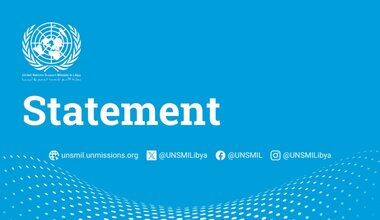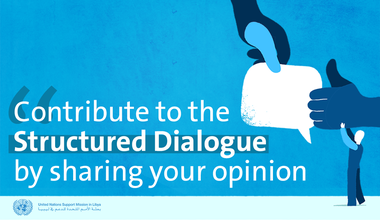UN Deputy High Commissioner for Refugees calls for increased support, amidst deteriorating humanitarian situation in Libya
TRIPOLI, Libya – UNHCR’s Deputy High Commissioner for Refugees, Kelly T. Clements, concluded a two-day visit to Libya on Tuesday, committing to continued support for displaced people and others affected by ongoing clashes.
During her mission, Clements assessed the growing humanitarian needs facing the country. While clashes continue daily, many people have lost their homes, face reduced access to services and endure increasing power and electricity cuts. Over 268,000 Libyans are now displaced inside the country, including almost 120,000 displaced since clashes restarted in April.
“People in Libya are suffering immensely,” said Clements. “It’s crucial that humanitarian support keeps pace with the rising needs. They must not be overlooked.”
In Tripoli, Clements visited the Gathering and Departure Facility and spoke to refugees from Eritrea, Somalia, Sudan and Ethiopia, who expressed their frustration about the dire conditions in detention and limited solutions in safe third countries.
“I was moved by the stories of resilience and courage I heard in Libya. Refugees in Libya suffer from abuse at the hands of smugglers, prolonged periods of detention, and over 50,000 struggle to sustain themselves living in the urban community”.
During discussions with the Minister of Interior, Mr. Fathi Bashagha, UNHCR renewed its commitment to work together towards ending arbitrary detention in Libya, where over 4,800 refugees and migrants are detained. Clements also conveyed the readiness of UNHCR to support refugees in the urban community after they are released from detention and to continue to advocate for solutions for them outside of Libya. So far in 2019, 1,345 refugees left Libya under an evacuation and resettlement programme.
“Solutions in safe third countries change the lives of refugees, it’s a lifeline, but options are very limited. We need additional support from the international community to expedite evacuations, resettlement and provide additional legal pathways for refugees in Libya”.
During meetings with partners, Clements discussed the importance of working together to support displaced persons in Libya.
“The humanitarian community is faced by many challenges, including security and limited access. Only ten days ago, three UN personnel lost their lives in Benghazi in a horrific attack. We are nonetheless resolved to continue our work to support Libya and will work together for persons who are suffering in the country. We stand with Libya and its people”.
Media contacts:
In Libya: Paula Barrachina +218 91 001 7553 barrachi@unhcr.org
In Tunis: Tarik Argaz +216 29 961 295 argaz@unhcr.org
 United Nations Peacekeeping
United Nations Peacekeeping UN
UN












